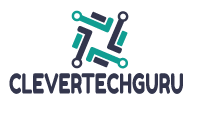As technology continues to evolve, artificial intelligence (AI) has emerged as a pivotal force shaping various industries. Among the latest advancements in AI is Claude AI, a cutting-edge conversational agent designed to understand and generate human-like text. Developed by Anthropic, Claude AI represents a significant leap forward in natural language processing, aiming to make interactions with machines more intuitive and effective. This article explores the features, applications, and implications of Claude AI, highlighting its potential to transform how we engage with technology.
Claude AI is named after Claude Shannon, the father of information theory, which underscores its foundational principles in communication and understanding. Unlike traditional AI models, Claude AI employs advanced techniques to enhance its conversational capabilities, making it a versatile tool for both businesses and individuals. Its design focuses not only on generating coherent and contextually relevant responses but also on ensuring a more ethical and user-centered approach to AI interaction.
One of the standout features of Claude AI is its ability to understand nuanced language and context. This capability allows it to engage in more meaningful conversations, addressing user queries with a depth that was previously challenging for AI systems. Whether it’s answering questions, providing recommendations, or assisting in complex problem-solving, Claude AI’s sophisticated algorithms enable it to adapt to various conversational styles and user needs. This adaptability makes it an invaluable resource in customer service, education, and content creation, where precise communication is crucial.
In addition to its conversational prowess, Claude AI is designed with safety and ethical considerations at its core. Anthropic has prioritized the development of AI that minimizes harmful outputs and reduces biases, aiming to create a more responsible AI environment. By implementing rigorous testing and feedback mechanisms, Claude AI seeks to ensure that its interactions are not only informative but also respectful and inclusive. This commitment to ethical AI is essential in building trust among users and fostering a positive relationship between humans and machines.
The applications of Claude AI extend across various sectors, including healthcare, finance, and entertainment. In healthcare, for instance, it can assist medical professionals by providing quick access to information, helping with patient inquiries, and even supporting mental health initiatives through conversational therapy. In finance, Claude AI can analyze market trends and provide insights to investors. Meanwhile, in the entertainment industry, it can generate creative content, such as scripts or music, showcasing its versatility and creative potential.
In conclusion, Claude AI represents a significant advancement in the field of artificial intelligence, offering a more human-like and ethical approach to machine interaction. Its ability to understand context, coupled with a commitment to safety and inclusivity, positions it as a transformative tool across numerous industries. As we continue to explore the capabilities of AI, Claude AI stands out as a promising development that could redefine our relationship with technology, making it more accessible and beneficial for everyone.
